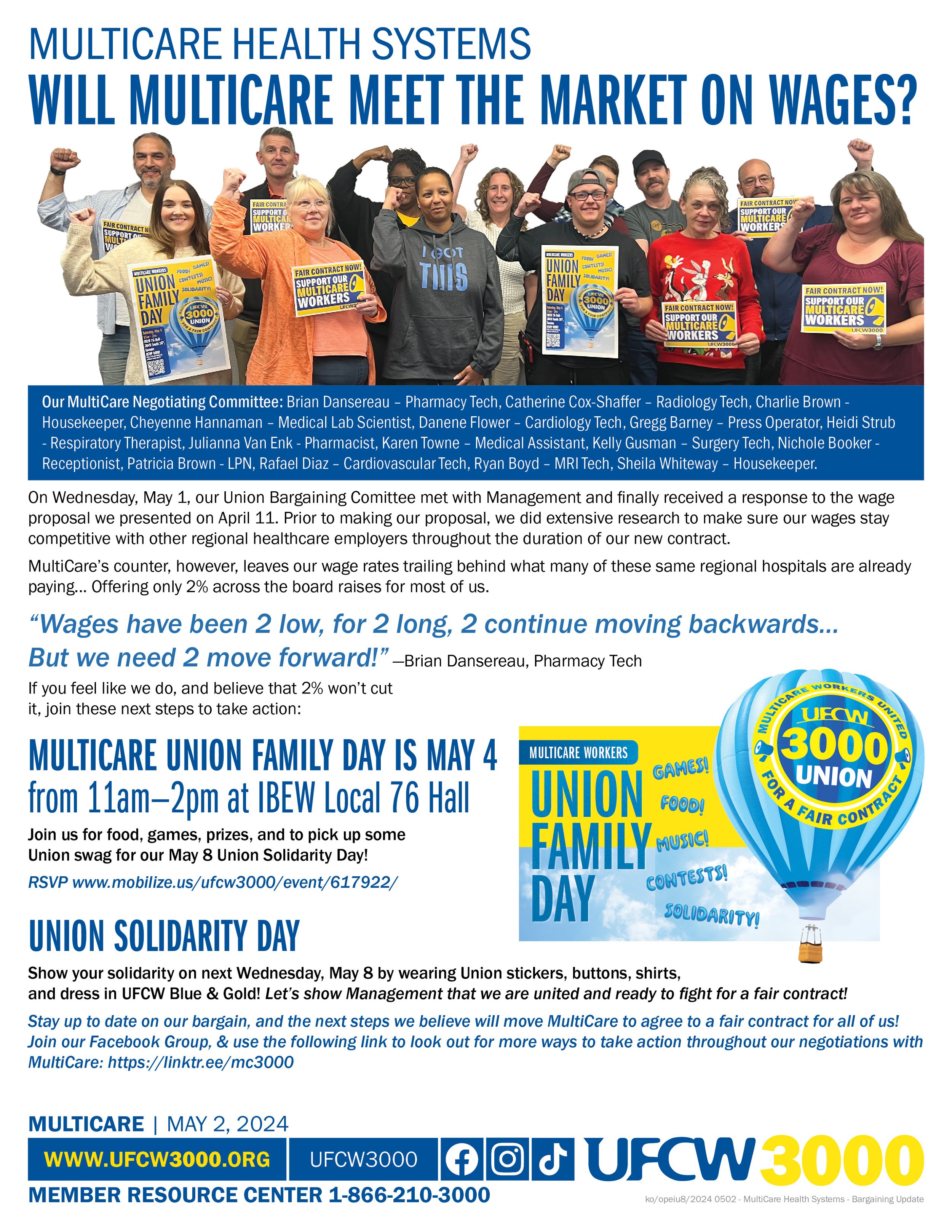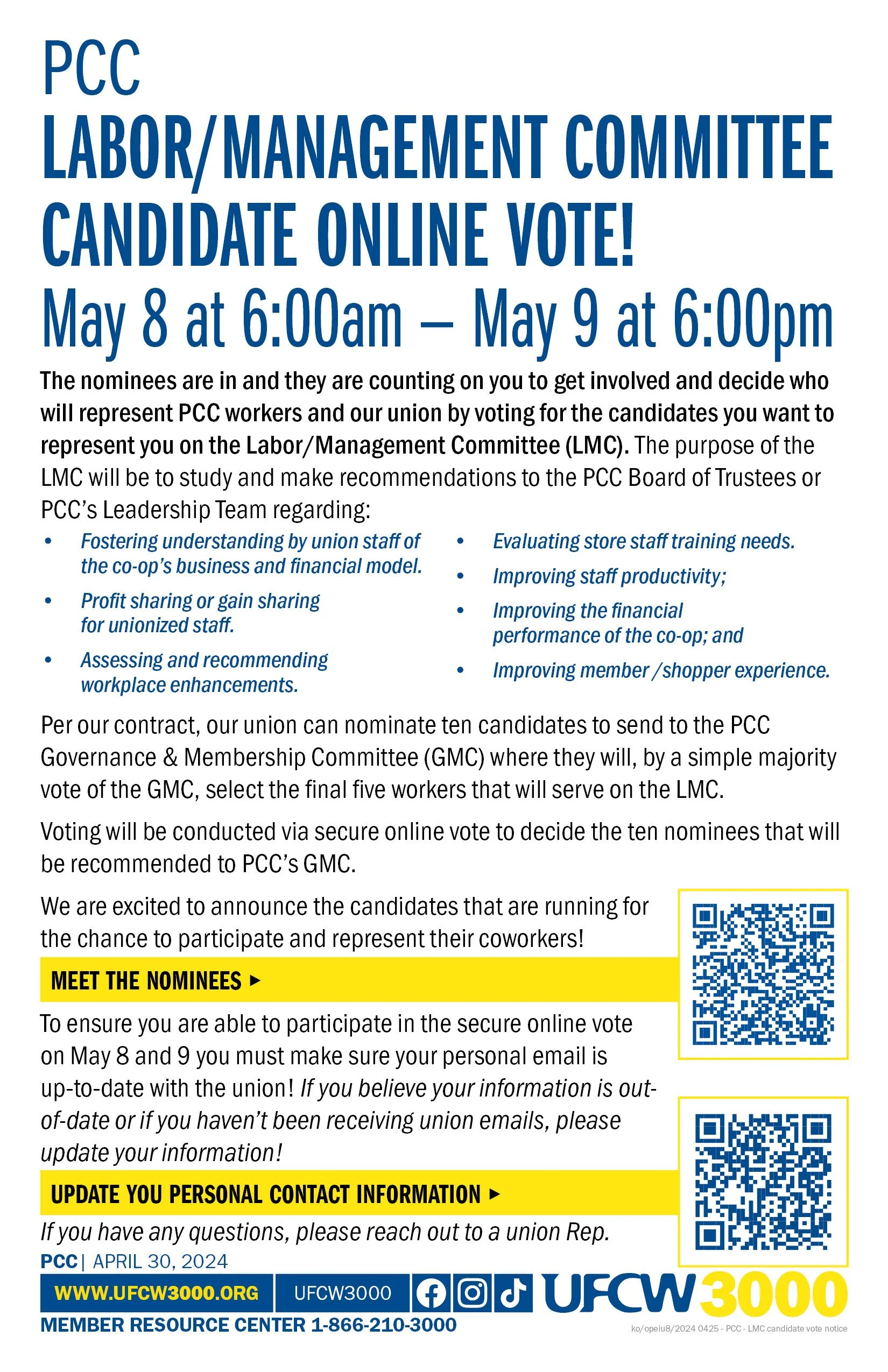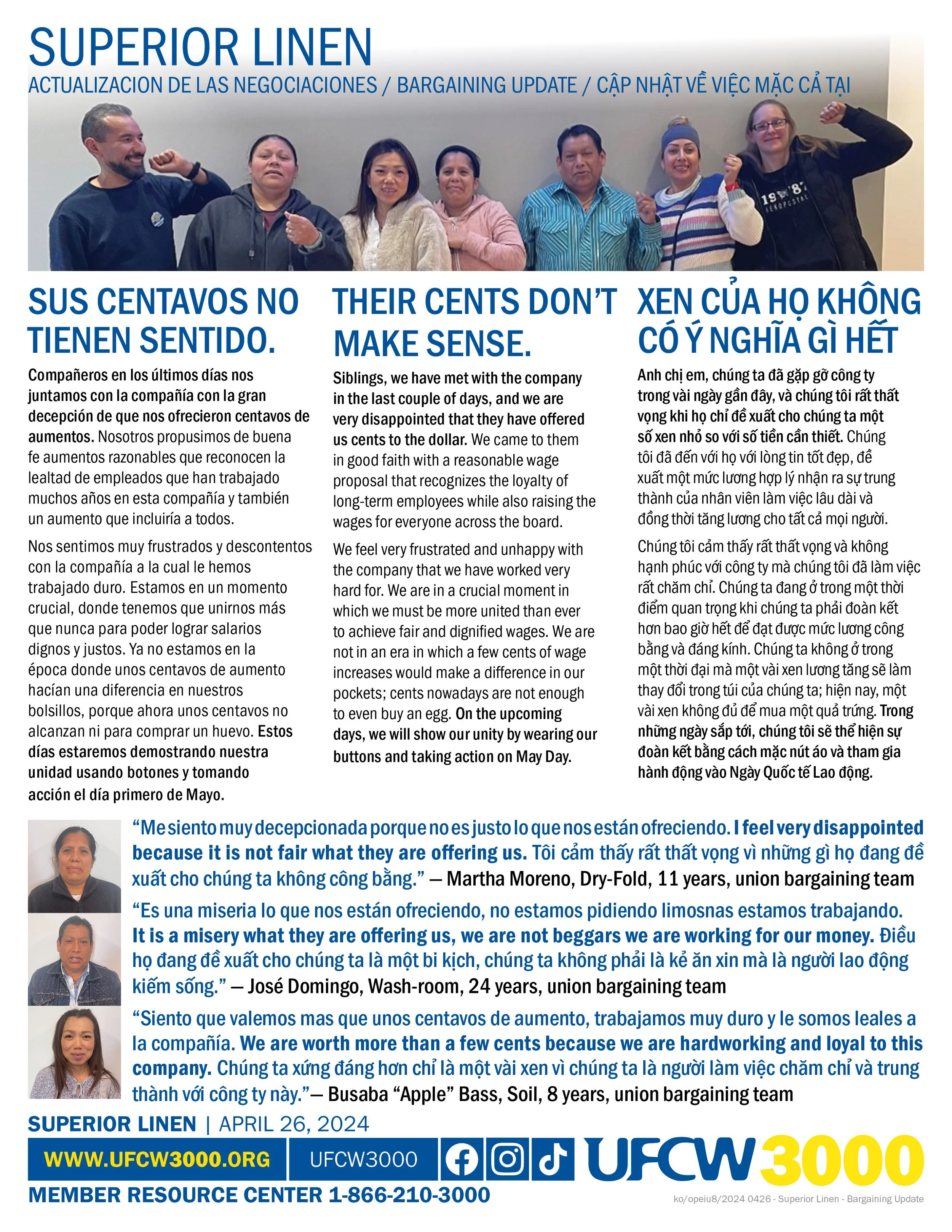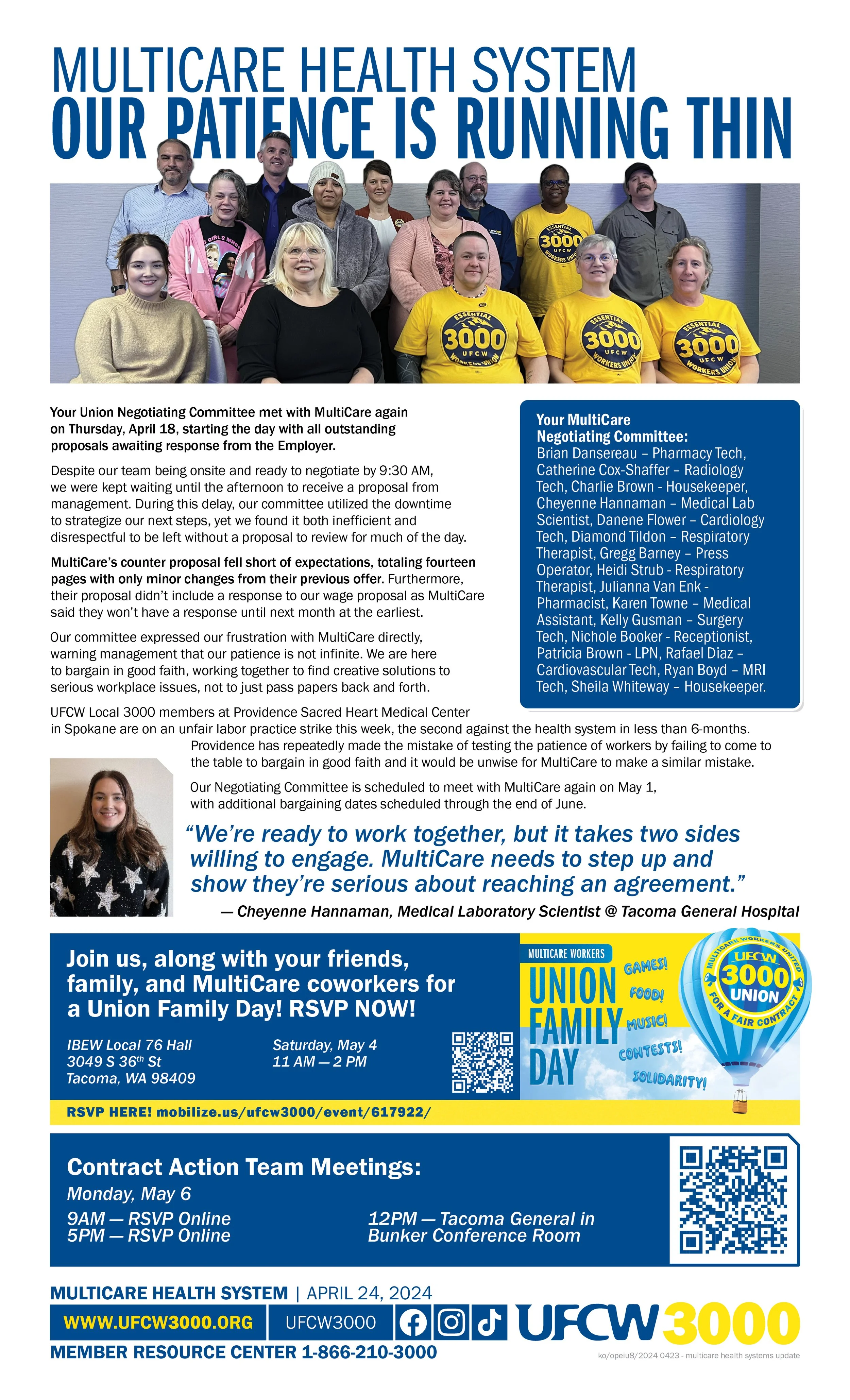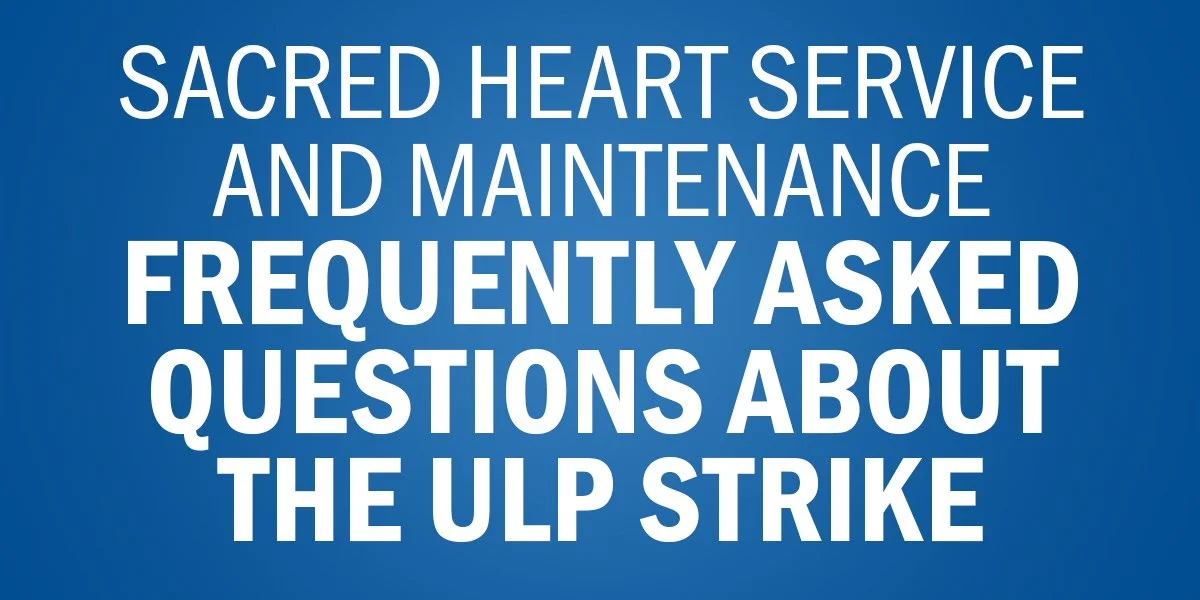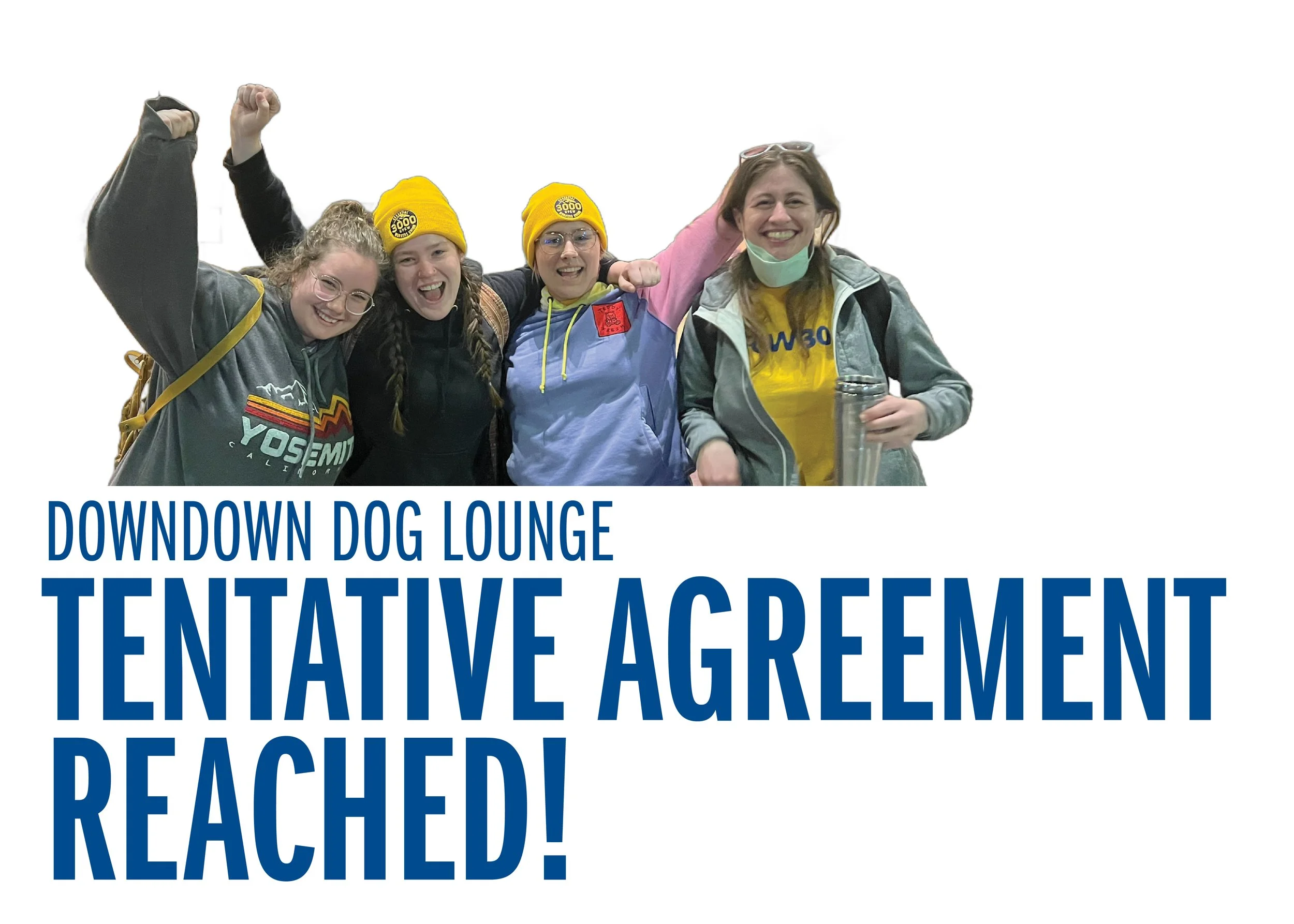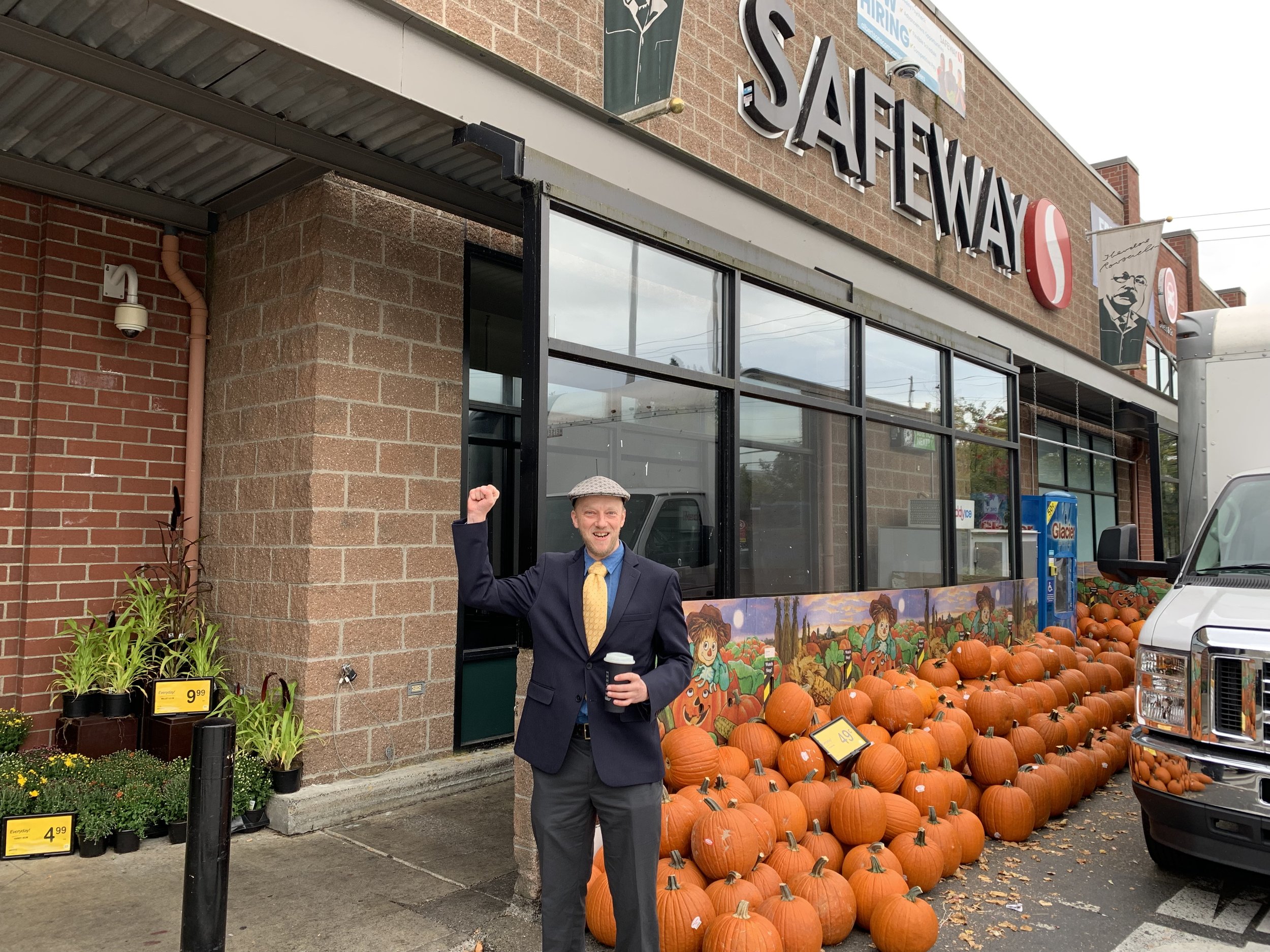UFCW 3000 Member Story: Kyle Chrisman
/Kyle Chrisman
Kyle Chrisman has been working at LabCorp for almost 18 years on Capitol Hill as a phlebotomist. Kyle is dedicated to his patients and coworkers, which is why he fights so hard to build collective power on the job. Kyle is currently serving on the LabCorp union bargaining committee. Phlebotomist union members at LabCorp have often had their concerns ignored by their employer and Kyle is ensuring that LabCorp hears them loud and clear during negotiations.
LabCorp is having trouble staffing and retaining workers and union members know why, LabCorp needs to provide competitive wages and benefits. The City of Seattle recently announced that the minimum wage within city limits would be going up 6.85%, which helps workers keep pace with the increased costs of living and working in the city. Instead of proposing a wage scale based on the percentage, LabCorp simply bumped all positions that were under the new minimum wage rate of $19.97. This compresses the scale so that several of the steps are at the same rate. LabCorp then maintained their offer of below-market raises, decreased percentages between steps above minimum wage, and higher health care costs.
Kyle and his fellow bargaining committee members know that is simply not realistic when it comes to making ends meet and safely caring for patients. That is why the bargaining committee updated their proposal to reflect the effects of the new minimum wage throughout their wage instead of just meeting it like LabCorp.
Stay tuned as Kyle and his fellow union members fight for a better contract and better patient care, they have already held one info picket are prepared to take further action to ensure a fair contract!





